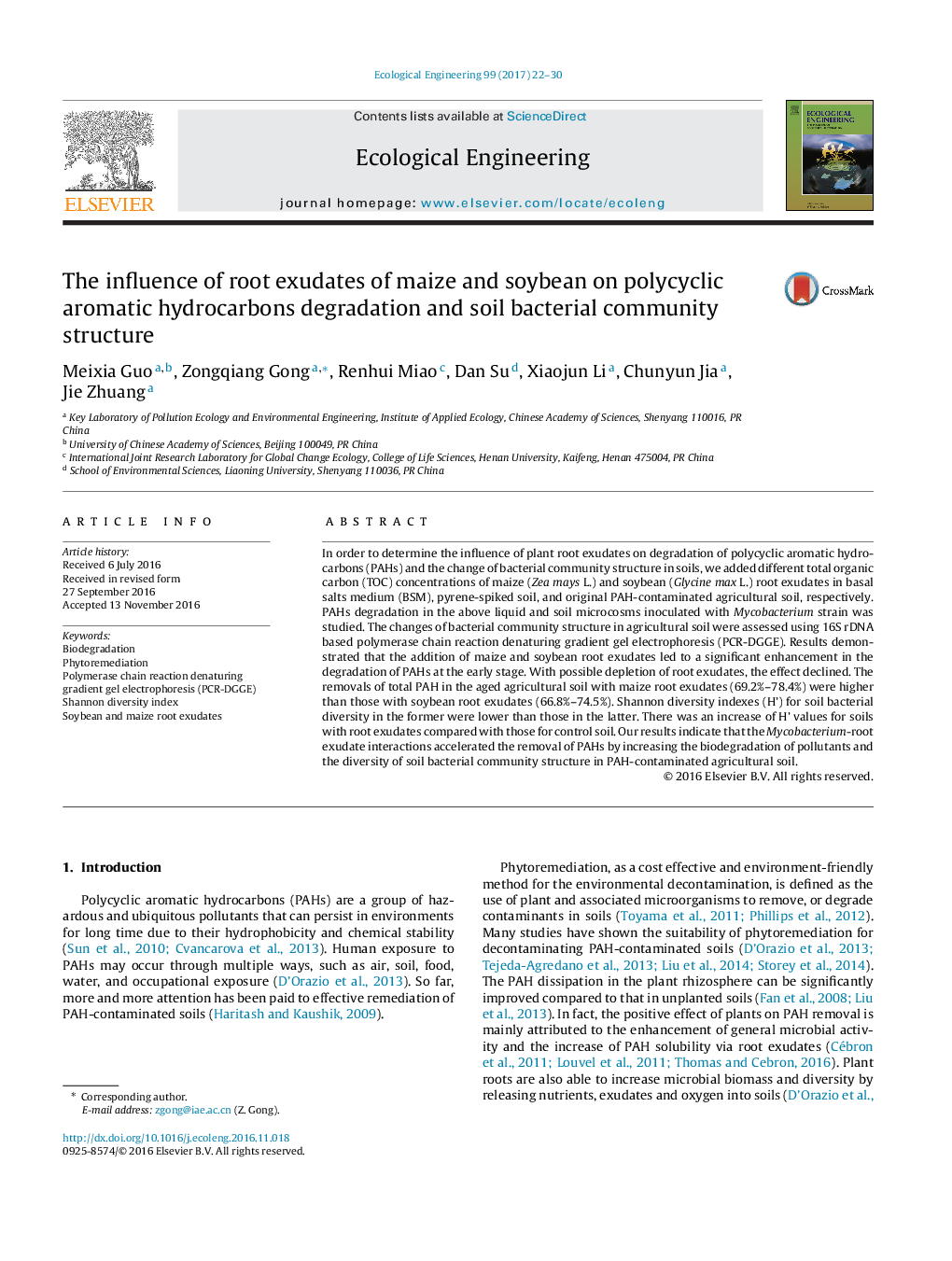| Article ID | Journal | Published Year | Pages | File Type |
|---|---|---|---|---|
| 5743967 | Ecological Engineering | 2017 | 9 Pages |
Abstract
In order to determine the influence of plant root exudates on degradation of polycyclic aromatic hydrocarbons (PAHs) and the change of bacterial community structure in soils, we added different total organic carbon (TOC) concentrations of maize (Zea mays L.) and soybean (Glycine max L.) root exudates in basal salts medium (BSM), pyrene-spiked soil, and original PAH-contaminated agricultural soil, respectively. PAHs degradation in the above liquid and soil microcosms inoculated with Mycobacterium strain was studied. The changes of bacterial community structure in agricultural soil were assessed using 16S rDNA based polymerase chain reaction denaturing gradient gel electrophoresis (PCR-DGGE). Results demonstrated that the addition of maize and soybean root exudates led to a significant enhancement in the degradation of PAHs at the early stage. With possible depletion of root exudates, the effect declined. The removals of total PAH in the aged agricultural soil with maize root exudates (69.2%-78.4%) were higher than those with soybean root exudates (66.8%-74.5%). Shannon diversity indexes (H') for soil bacterial diversity in the former were lower than those in the latter. There was an increase of H' values for soils with root exudates compared with those for control soil. Our results indicate that the Mycobacterium-root exudate interactions accelerated the removal of PAHs by increasing the biodegradation of pollutants and the diversity of soil bacterial community structure in PAH-contaminated agricultural soil.
Related Topics
Life Sciences
Agricultural and Biological Sciences
Ecology, Evolution, Behavior and Systematics
Authors
Meixia Guo, Zongqiang Gong, Renhui Miao, Dan Su, Xiaojun Li, Chunyun Jia, Jie Zhuang,
